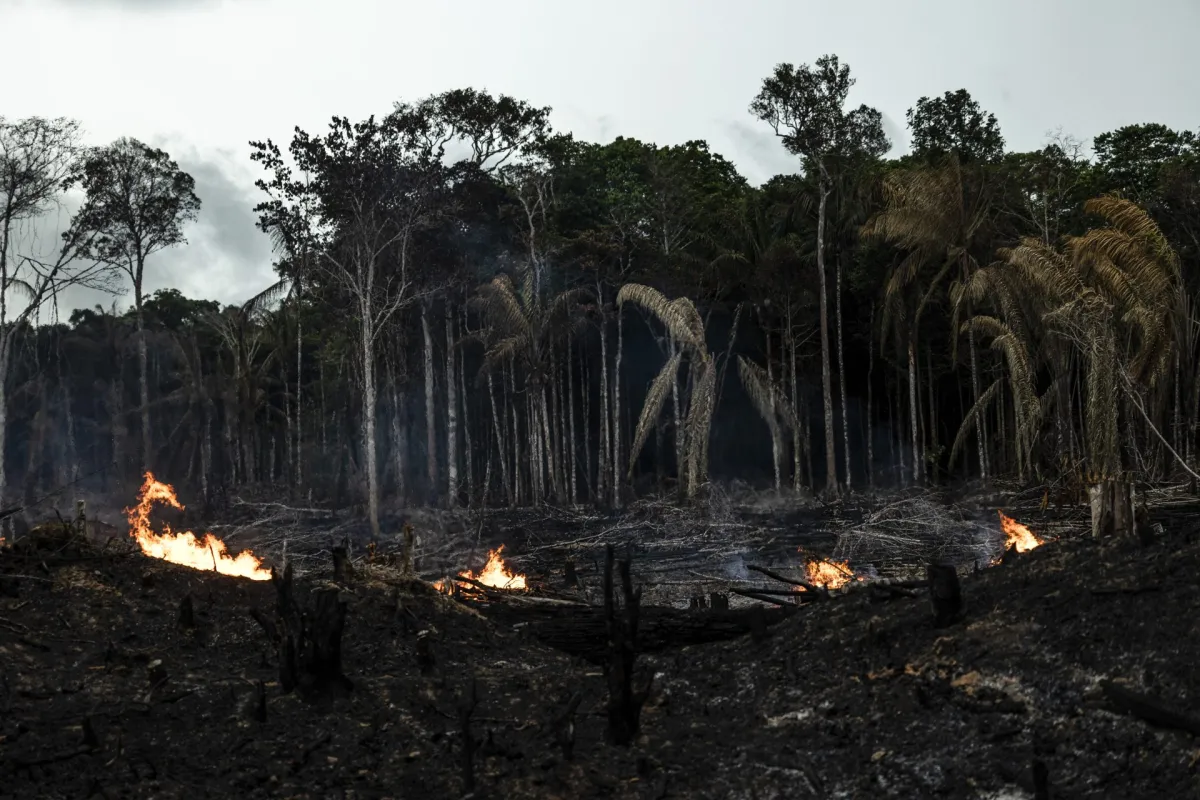International
Fires in Brazil so far this year already exceed all those of 2023

September is not over yet and the fires that Brazil has experienced so far this year exceed those that occurred throughout 2023, according to official data released this Monday.
Between January 1 and September 22, the South American country registered 200,013 fire outbreaks, a number 5.3% higher than all those that occurred last year, according to the fire alarm system of the National Institute of Space Research, INPE.
These are the largest fires recorded in the country since 2010, a problem that has especially affected the Brazilian Amazon, the most impacted biome with 100,543 fire outbreaks so far in 2024.
Only between August and September, 80% of the flames in the country were unleashed during the year.
For about two months, 60% of the Brazilian territory has suffered the worst drought in 50 years.
In that period, the lack of humidity, the heat and the increase in the winds helped to generate about 141,500 fires, largely caused by the lack of control of the fire used by landowners to prepare the land for sowing.
In addition, the drought has reduced to a minimum the flow of several important rivers in the Amazon, leaving isolated rural communities and causing difficulties in the transit of people and goods, which in the region depend on river transport.
The Government has taken several measures to deal with the situation, such as prohibiting the use and management of fire during the drought period, while the Supreme Court authorized the Government to modify its budgets so that the resources to fight fires are not counted in the tax calculation.
However, Environment Minister Marina Silva admitted on Monday in New York, within the framework of the UN General Assembly, that the measures have been insufficient.
“What we are discovering now is that (what was planned) was not enough,” he said in statements to the newspaper Folha de São Paulo.
International
Dominican ‘False Hero’ Arrested for Faking Role in Nightclub Collapse That Killed 231

A man identified as Rafael Rosario Mota falsely claimed to have rescued 12 people from the collapse of the Jet Set nightclub in Santo Domingo—a tragedy that left 231 people dead—but he was never at the scene.
Intelligence agents in the Dominican Republic arrested the 32-year-old man for pretending to be a hero who saved lives during the catastrophic incident, authorities announced.
Rosario Mota had been charging for media interviews in which he falsely claimed to have pulled survivors from the rubble after the nightclub’s roof collapsed in the early hours of April 8, during a concert by merengue singer Rubby Pérez, who was among those killed.
“He was never at the scene of the tragedy,” the police stated. The arrest took place just after he finished another interview on a digital platform, where he repeated his fabricated story in exchange for money as part of a “media tour” filled with manipulated information and invented testimonies.
“False hero!” read a message shared on the police force’s Instagram account alongside a short video of the suspect, in which he apologized: “I did it because I was paid. I ask forgiveness from the public and the authorities.”
Central America
Nicaraguan Exiles to Mark 7th Anniversary of 2018 Protests with Global Commemorations

The Nicaraguan opposition in exile announced on Thursday that it will commemorate the seventh anniversary of the April 2018 protests against the government of President Daniel Ortega and his wife, Rosario Murillo, with events in Costa Rica, the United States, and several European countries.
The commemorative activities—which will call for justice for the victims, as well as freedom and democracy for Nicaragua—will include religious services, public forums, cultural fairs, and other public gatherings, according to official announcements.
In April 2018, thousands of Nicaraguans took to the streets to protest controversial reforms to the social security system. The government’s violent response quickly turned the demonstrations into a broader call for the resignation of President Ortega, who is now 79 and has been in power since 2007.
The protests resulted in at least 355 deaths, according to the Inter-American Commission on Human Rights (IACHR), although Nicaraguan organizations claim the toll is as high as 684. Ortega has acknowledged “more than 300” deaths and maintains the unrest was an attempted coup d’état.
International
Arsenal stun Real Madrid at the Bernabéu to reach Champions League semifinals

Arsenal enjoyed a “historic night” on Wednesday after defeating Real Madrid 2-1 at the Santiago Bernabéu, knocking them out of the Champions League quarterfinals, midfielder Declan Rice said.
“It’s such a special night for this club, a historic night for this club,” said Rice, who scored twice in the first leg in London, speaking to TNT Sports.
The English international was named Man of the Match in both legs — the 3-0 win in London and the second leg in Madrid.
“It’s amazing. I knew we were on an upward trajectory and we’ve done incredibly well in this competition. We deserve it and we have full confidence in our coach. Reaching the semifinals is unbelievable,” Rice added.
-

 International4 days ago
International4 days agoNightclub Collapse in Dominican Republic Claims 226 Lives
-

 International4 days ago
International4 days agoVenezuela accuses Guyana of “warlike intentions” after UK defense deal
-

 Central America3 days ago
Central America3 days agoHonduran Police Offer $135K for Tips Leading to the Arrest of Romeo Vásquez
-

 Central America2 days ago
Central America2 days agoPetro questions Ecuador’s vote, cites reports of military control and arrests
-

 International3 days ago
International3 days agoMPV Denounces Electoral Blockade as Secretary-General is Disqualified for May Elections
-

 International3 days ago
International3 days agoMaduro Plans Major Workers’ March on May 1st to Defend Venezuela’s Freedom
-

 International1 day ago
International1 day agoArsenal stun Real Madrid at the Bernabéu to reach Champions League semifinals
-

 International1 day ago
International1 day agoBogotá residents line up for yellow fever vaccine amid national alert
-

 International1 day ago
International1 day agoMexico refuses to restore ties with Ecuador while Noboa remains in office
-

 International2 days ago
International2 days agoColombia: Search continues for missing limb of italian scientist found dismembered
-

 International1 day ago
International1 day agoDeSantis’ immigration crackdown sparks alarm in Venezuelan Communities in Doral
-

 International2 hours ago
International2 hours agoDominican ‘False Hero’ Arrested for Faking Role in Nightclub Collapse That Killed 231
-

 Central America2 hours ago
Central America2 hours agoNicaraguan Exiles to Mark 7th Anniversary of 2018 Protests with Global Commemorations















